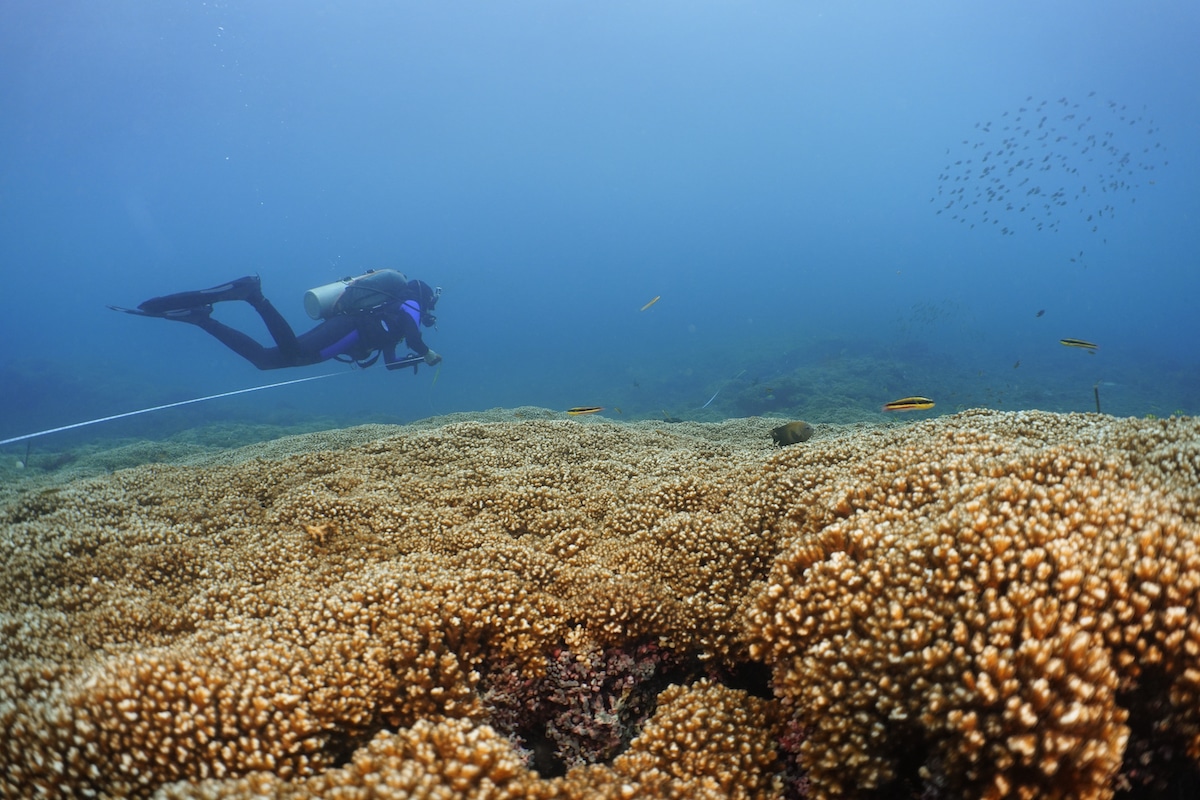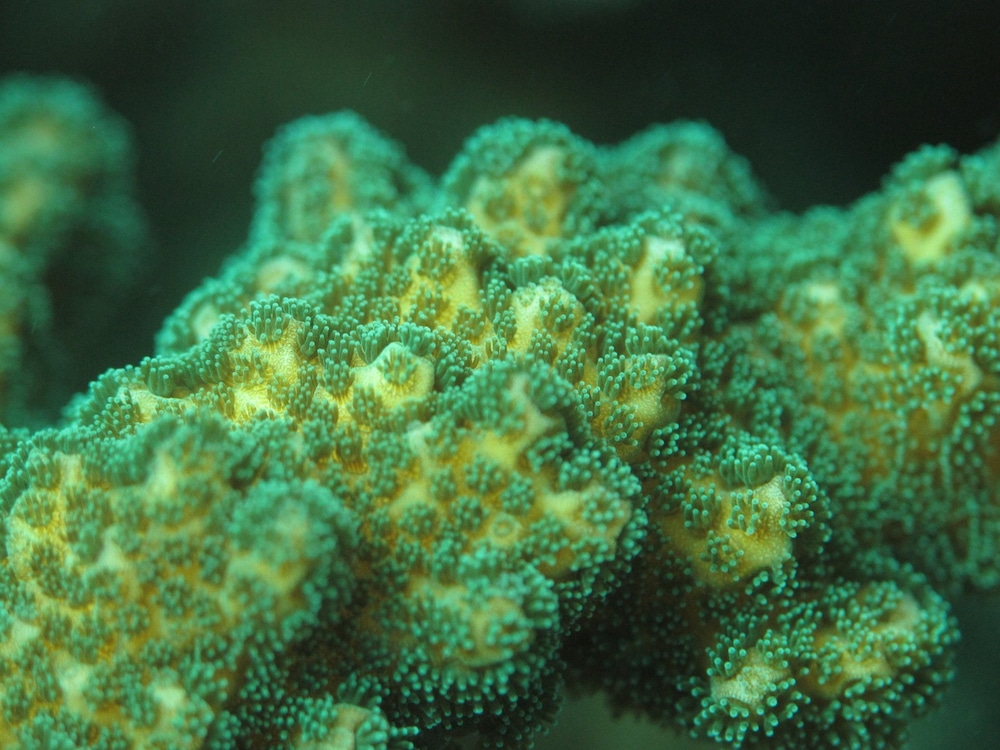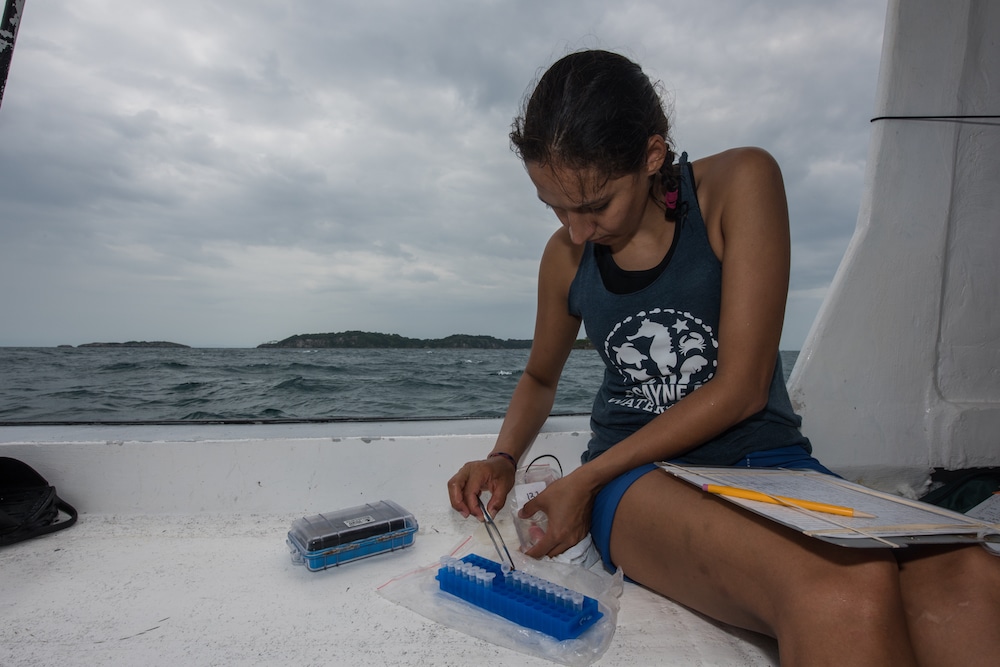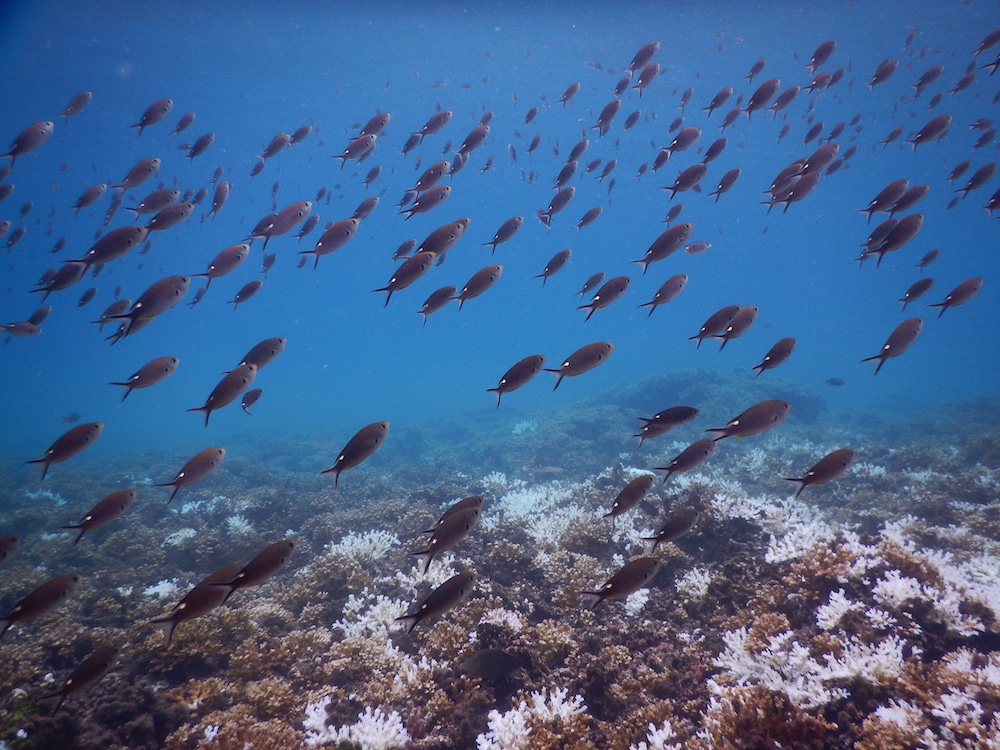A Ray of Hope for Some Coral Reefs

 Why you can trust us
Why you can trust us
Founded in 2005 as an Ohio-based environmental newspaper, EcoWatch is a digital platform dedicated to publishing quality, science-based content on environmental issues, causes, and solutions.
Sometimes, change is good.
Scientists at the University of Miami Rosenstiel School of Marine, Atmospheric, and Earth Science have discovered a new resiliency in certain coral reefs in the tropical Pacific Ocean. Dominant, foundational coral species on those reefs have survived multiple marine heat waves so far by changing out the symbiotic algae within their cells to build heat tolerance. This adaptation could help those reefs survive into the 2060s – well beyond current projections for coral reefs as a whole.
Coral reefs are rich and vital marine ecosystems. Despite taking up less than 1% of the ocean floor, they are home to more than 25% of all marine life – providing food, shelter and habitat. In fact, coral reefs could be the most biodiverse ecosystem on the planet – even edging out tropical rainforests.
Individual coral colonies are made up of “duplicated” individual coral polyps, which replicate themselves to create massive structures and reefs. Each coral polyp, itself a complete animal, contains symbiotic algae called zooxanthellae. The microscopic algae photosynthesize and provide corals with energy that the hosts use to grow. In exchange, the algae have a safe place to live within the corals and use their hosts’ waste to photosynthesize.

Climate change is causing water temperatures to increase to unprecedented levels, threatening coral health worldwide. Typically, as water temperatures increase, corals expel their helpful algae (which also give them their namesake colors) and “bleach.” Without the energy provided by zooxanthellae, the corals turn white, struggle to meet their energy needs and often die. According to The Independent, Earth has already lost more than half of its “underwater rainforests” and over 90% will die by 2050. Along the same lines, the World Economic Forum reported that 99% of coral reefs could disappear without drastic climate action in this decade.
Understanding how and why changes in this symbiotic relationship occur led the UMiami scientists to their new discovery. Their findings – that some corals can shuffle symbionts to increase heat resistance in the face of climate change – offer a “ray of hope” against this dominant and depressing coral narrative.
“There is a huge diversity of algal symbionts that associate with corals, and different species have different weaknesses and strengths,” explained Ana Palacio-Castro, the study’s lead author and a post-doctoral researcher at the University of Miami and NOAA-AOML. “That is also the case for these algal symbionts – some are more resistant to heat stress.”

The scientists are studying how different species of zooxanthellae help their hosts adapt to changing oceanic conditions through increased resilience to conditions like higher water temperatures, increased acidification or sedimentation, Palacio-Castro added. However, different coral species vary in their ability to shuffle symbionts to acquire various types of resistance. So, being able to complete a “symbiont shuffle” could be a key to a coral’s survival into the future.
The team examined over 40 years’ worth of coral reef-monitoring data from Panama. During that time, three heat waves (1982-83, 1997-98 and 2015-16) occurred; comparing data on algal symbiont communities in the area during the latter two heat waves led to an understanding of how certain corals can improve their tolerance to heat stress via a symbiont shuffle.
In particular, they found, Pocillopora corals increase the amount of Durusdinium glynnii zooxanthellae during ocean heat waves. The latter are what boost the host corals’ heat tolerance. According to Palacio-Castro, thermal-resistant algae have been found to be “more selfish and share less energy” with their hosts. “Under normal conditions, these zooxanthellae might not be the most beneficial for the corals, but, under stressful conditions, these selfish symbionts become beneficial since they can better cope with stress,” she explained. “It’s not the optimal symbiont for the ideal coral world, but since we’re not in the ideal coral world, this is what they need.”
The findings are particularly salient because of how critical Pocillopora corals are to the Eastern Pacific marine ecosystem. “We have seen other coral species shuffle algal symbionts, but it was understood as a process that could not save whole reefs,” Palacio-Castro told EcoWatch. “In our study, what was new is that the coral that can shuffle its symbionts in the most important coral in the region.”
These “cauliflower corals” are “super dominant” reef-builders in the Eastern Pacific, sometimes covering 90% of the substrate. “So, the fact that this coral can shuffle symbionts and survive heat stress might help protect entire reefs in the Eastern Pacific region,” she said. “This brings us hope because these reefs will be preserved longer than we thought, and this gives us more time to figure out climate change.”
Now, the UMiami team wants to work with coral restoration practitioners to see if they can induce a symbiont switch for more heat-tolerant algae communities to prime corals before they’re put back onto reefs.
“Our goal with this paper is to show a little bit of hope, but that hope needs to be a call for action,” Palacio-Castro said. “We have some time. There’s still a lot of beautiful things we can preserve, but we need to start acting now.”

Subscribe to get exclusive updates in our daily newsletter!
By signing up, you agree to the Terms of Use and Privacy Policy & to receive electronic communications from EcoWatch Media Group, which may include marketing promotions, advertisements and sponsored content.

 233k
233k  41k
41k  Subscribe
Subscribe 




